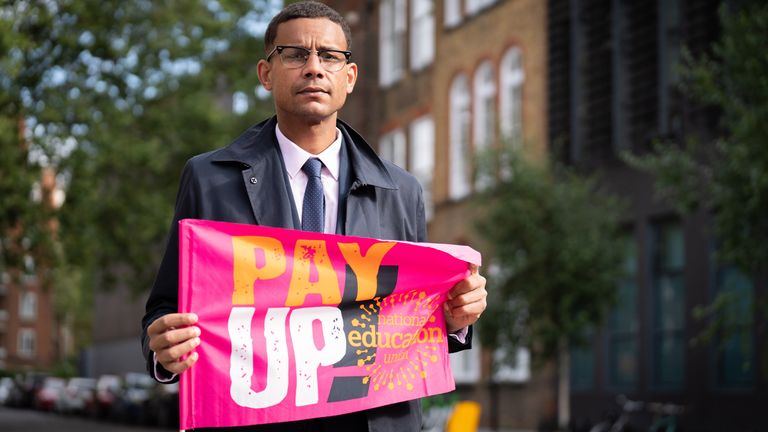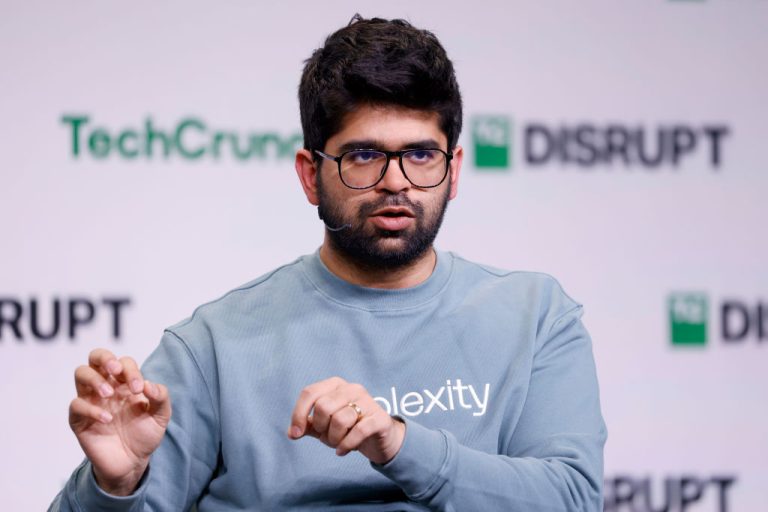Teaching Unions Brace for Battle with Government Over AI-Driven Job Loss Concerns
A disagreement is emerging between teaching unions and Number 10 regarding the potential effects of AI on employment, as reported by Sky News. The National Education Union (NEU), the largest teaching union in the UK, has expressed concerns that AI teaching tools could threaten jobs within the profession, particularly for lower-paid teaching assistants whose responsibilities might be automated.
Alarm bells were raised in January when the government announced a £1m funding initiative aimed at 16 tech companies to develop AI tools for teachers, intended to enhance feedback and grading, thereby elevating educational standards. NEU general secretary Daniel Kebede communicated to Sky News that, while there are advantages to implementing AI, there has not yet been a significant dialogue with the educational sector. He criticized the Department for Education (DfE) for moving ahead without adequate consultation. Kebede acknowledged that AI has the potential to alleviate workloads and reduce bureaucracy, emphasizing, however, that education is fundamentally a relational and social experience.
Kebede noted that AI could be utilized positively or in a manner reminiscent of comments made by Elon Musk, who advocates for transforming education through gamification, which some interpret as a move toward eliminating teachers and teaching assistants altogether. He stated, “The profession is exhausted from top-down decisions that fail to consider our perspective. If AI is employed to free up educators’ time for more effective focus, then it is acceptable—but we will oppose any attempts to de-professionalize, deskill, or replace teaching assistants.”
A spokesperson for the DfE dismissed the NEU’s assertions, stating that it is incorrect to claim that the department has not engaged meaningfully with the sector regarding AI. They explained that from the initial call for evidence to the publication of their policies on AI, there has been consistent communication, and they will continue to engage with educators as they modernize the education system, support teachers, and cater to children’s needs.
Nonetheless, the topic of AI could present a challenge for Education Secretary Bridget Phillipson, who must navigate the unions’ concerns while promoting the government’s initiative to leverage AI for greater efficiency and cost savings in a sluggish economy. Phillipson has faced hostile internal briefings implying that her policy initiatives, particularly concerning academies, aim to cultivate closer ties with the unions, which may prove essential for her in any future leadership endeavors. Furthermore, the NEU has threatened to strike in response to the government’s offer of a 2.8% pay raise, and they have criticized Phillipson’s decision to replace traditional one-word Ofsted grades with a color-coded five-point scale.
An ally of Phillipson dismissed the negative briefings as “baseless and misogynistic,” suggesting that these narratives are orchestrated by individuals intent on undermining the Prime Minister by targeting his allies.
Additionally, the government’s ambition to challenge the so-called “blob”—a term coined by former Tory Education Secretary Michael Gove to describe unions, councils, and civil service entities resistant to change—was highlighted when Sir Keir Starmer announced plans to disband NHS England and place it directly under ministerial oversight as part of a bureaucratic overhaul. In a speech outlining the transformative possibilities of AI, Starmer described the technology as a “golden opportunity” to reform an “overstretched, unfocused” state, potentially yielding savings of up to £45bn. He characterized the current state system as weaker than ever, unable to provide the necessary security for the populace. Science and Technology Secretary Peter Kyle acknowledged that the government’s plans would likely result in a significant reduction in civil service staffing levels.
There is a growing sentiment that the public would favor a “leaner, smarter, smaller state over time.” Concerns are also being raised about significant changes in various sectors, including discussions surrounding entities like NHS England and the implications of potential abolition.
Rob Poole, a teacher from northern England and a member of the NEU, has noted that large language models (LLMs) like Chat GPT and Gemini are already being integrated into classrooms to assist with lesson planning and assessments. While he acknowledges the usefulness of AI, he emphasizes that it cannot replicate the “personal connection” that students, particularly those with special needs, have with teaching assistants. “AI doesn’t know that pupil or their needs,” he remarked.
AI Could Never Replace Teachers – Insight by Education Reporter Anjum Peerbacos
There are certainly applications for AI within the education sector; however, the idea that it could fully replace teachers is unrealistic. Consider how AI would handle breaking up a fight or managing sensitive disclosures from a child. While AI can be instrumental in preparing educational materials—like quizzes or content for lessons—I can attest from my experience as a teacher that the core responsibilities of educators lie in face-to-face interactions with students, both inside and outside the classroom.
The many conversations that occur foster crucial relationships between children and their teachers. These relationships are essential for shaping the opportunities and potential of our youth.
“The implementation of AI should involve consultations with unions, which is currently not taking place,” he added. “Our concerns center around the risk of de-skilling teachers and diminishing their professional autonomy—one must ask, do we need teachers at all?”







